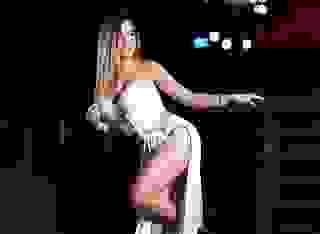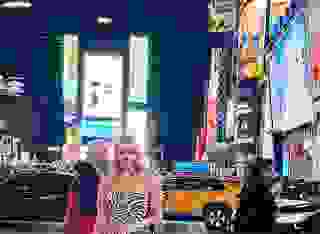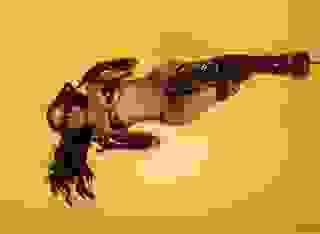- Reviews & Essays
- Gay Lit. 101
Note: You can change font size, font face, and turn on dark mode by clicking the "A" icon tab in the Story Info Box.
You can temporarily switch back to a Classic Literotica® experience during our ongoing public Beta testing. Please consider leaving feedback on issues you experience or suggest improvements.
Click hereIt's a curious thing, gay literature. It has, over the years, been the most difficult of books for me to read. Gore Vidal, Tennessee Williams, even Gordon Merrick (remember him?) and scores of other gay or bi writers seem defeated before they started. Excellent as Vidal and Williams and John Rechy can be, there is this terrible undercurrent or not so undercurrent in these books, as in James Baldwin's works, that says this is all pretty sad, all pretty violent, all despairing. I guess they fit the tenor of their times and ours still and all, but Lord, they make me want to cut my throat. As a writer of some pretty sad stories myself, this is truly saying something.
I don't know where the word "gay" comes from, but if it means happy, then these books make it into a very difficult form to figure out. There are categories. Are there ever categories. One is gay or bi or transgender or transsexual, but one can never quite be one's self, when reading these books, and if "A Sand Fortress" professes something akin to being successful in love and richness of soul, and if a world of reason from Williams takes us into the gay world as it really is, then this is the most unreachable kind of world possible. There seems to be no hope in these novels and the scores of others I've read.
Pornography has gotten so horribly degrading and ugly, not a recent occurrence, in the gay world. It is self-abnegating and truly one of the biggest turn-offs in the world. Coming out is coming out in a format, they seem to say, gay porn and gay mainstream, (if there is a gay mainstream) this really is going to be a downcast life full of shadows, and if Larry Kramer's "Faggots" memory still lingers for some, then, though in its black comedy, I think it one of the truest books in the gay lit. If you can make your way through it, for there is still in current novels and gay movies, a terrifying aspect, a justification aspect that calls for the most troubling of human emotions and the most fearful of human betrayals to look forward to, and if I were a young man starting out then, it would scare the life out of me.
Magazines like "Blueboy" always were filled with such truly ugly stuff that I had to make my way through it by bent of force. "The Advocate" still sells because of its classifieds, which are horribly depressing things to read. It is the nature of man to want to be with his fellow beings whoever and whatever they are. But if one finds this all a lot more complex, if one is not in the ascending order, then these books and writers give a person the same, basically, iced front that heterosexuals have given out. With my very limited ability to write, I've discovered that it is possible to write sad stories from all different angles. I've even written Lesbian stories. And I've done my best not to categorize. Gay writers have to write for this market or that. And sex is usually, when it comes to gay fiction, so brutal in its words and in its, sex-making, not love making ever it seems, filled with such cruel words—cocksucker, fist fucking (now there's a charming little custom I thought had gone away,) one night stands, and booze and pills and poppers that anyone would wonder why a person would not go screaming, as it were, to the nearest Christer guidance council.
The pictures in "Blueboy" and the danger of the stories and the articles, flapping round with all sorts of drunken fear and possible, at the very least, mutilation, and the magazine counterparts of it today, are as filled with horror as was the movie, "Cruising," which the gay community, and rightly so, picketed against. It is filled with as many structures as is much of gay lit. It is a disease, the movie and novel say, don't catch it, or the knife in your back or your front.
As Black literature reflects the Black culture of the time, I suppose all literature does as well reflect its own culture, whether it be John Steinbeck, or Philip Roth, or Henry Roth or Jim Thompson. There is a depth of darkness in these writers too, and it would be foolish to say only happy stories and novels need not apply, but that image of Rechy as a male hustler who pisses on people if they pay him, and then heading back to Texas to write another of his excellent novels, still sticks in my head and is so terribly troubling.
In movies like "Jeffrey" there is such a sweetness and hopefulness. As in "In and Out" as well. And novels like "A Fairy Tale" are very happy, but they seem forced. They seem as if to say, we have to put on our best clothes and do our damndest not to offend anyone, take one from column A, and one from column B and mix it carefully, and on and on. But gay novels, the ones written by gay men and Lesbians are just as filled with what I have found the gay world to be—and that is it truly is a sad one, it truly is one of breaking alliances and breaking friendships and falling off the edge of the world. I come to writers like D.H. Lawrence, especially his "The Fox," for some kind of comfort, and in its way, it gives it. Gay writers have the ability to tell the times in which we live. But with them, for the most part, the decades never change. The hurts are still there and the stone cold faces and the fear of what happens turning the next page of life or of their work. Because the bigotry against gays will never go away, of course, but it is more than that—it is an exclusive club and you better write what we in effect tell you and think what we tell you to think, and feel the way we say—my way or the highway, which is so ironic and so disturbing.
It seems a cop-out really. It says you are this and you have these desires and you say it or write it in this way, and if your sexuality is all over the map, then you need not apply. All my life, I've had to re-imagine what I was reading at the time I was reading it. I had to put it in my terms. Well, everybody does that, but I mean I drastically had to do so, far more than other gay readers or viewers, and I thought when gay literature experienced one of its heydays, I would not have to do that anymore, but I still do it and basically I've given up on gay writers and gay filmmakers, though I still read them and still watch the movies, but it's still in an iron corset and if you don't fit, then see a shrink or something.
Life to me is a very sad thing. I go along with Kurt Vonnegut's concept of it as being a joke, a very cruel one, though he had a whimsy and a good-natured ness and a comfort to his books that made him a joy to read. I am not saying there should be happy gay fiction, for itself, nor am I saying writers should not write the way it feels, and the way it is. I am against censorship and see the writers and the filmmakers as our bulwark against total chaos and more horror shows running now since ever before in my memory. What I guess I'm saying is this: Let some air in. Stop closeting in the closet in the closet. If one reads Gide or Genet, one comes to a place of such aridness, such desolation, that it seems impossible to read one more word of them.
If "Willow Song" is a song of freedom, this sequel to "Song of the Loon," then what freedom are they talking about? Definitely not. But, apparently I still have to keep my mouth shut and still have to fear people around me and know they will hurt me eventually, and the books of gay writers tell me this and horribly so, they are right, but here is the main thing, they are also complicit. If the movie "A Very Natural Thing" was a depiction of gay life decades ago, then it seems things have not changed much, and Larry Kramer was right in "Faggots" and in an interview in "The Advocate"—there is only sexuality and gay people, by and large, care little more than that. Harsh, yes, and far too broad brushed, but definitely a point of view worth considering.
Gay literature took a terrible drubbing in the eighties thanks to Anita Bryant and all the Christers who have come since her, and I miss the mainstream paperbacks publishing a slew of gay books, but why none for me? Why none that do not make me still the kid at the window of the book shop on Christmas Eve, hoping this time to find a book that says this is me, this is how it is to be me, and one keeps hoping, and tries to write now and again himself, but hope runs out eventually. One has enough experiences, pretty much all of them bad, and if "Flesh Puppet" is still a concern with fist fucking all over again, then what does a community which I've never found, have for its readers other than, at best and at worst, fictive and not fictive rooms where lonely men hang themselves, or bars where they go off drunkenly with other men of some danger and thus like that danger. It seems all the hetero clichés of gays are incorporated in our own world of gay book writers. It also seems straight writers, like Joyce Carol Oates, are braver and stronger and wiser and see all of this, as well as everything else they write, as so complex, as so difficult to live and to see and to understand and deserving of intense contemplation and reflection. I will take her work that delves into homosexuality now and again over all the "Dream Boys" they can turn out.
Gay novels and stories and fantasies seem so angry, not only at people who repress them and hurt them and horrifyingly of all, kill them, and God knows the anger is justified, but angry at themselves, and us if we are like trying to nail Jell-O to the wall, us being the Jell-O, that is. If one can get a peter meter rating in Screw, if one can find the dejected hopelessness of sex toys used alone or videos to watch and again to recobble the naked sexing actors as closer to what you would wish and what you remember when, as Ed McBain used to write, "you and I were young, Kathleen," then sexuality, if it doesn't fit, is all the time the loneliest night of the week. McBain was criticized by gay people for his attitude to homosexuals in some of his novels. I never have figured that out. Gay writers excoriate their readers far more so than he ever did. If Quentin Crisp was correct, the reason heterosexuals find homosexuals so off-putting, it is because they, on immediately on hearing the word, think of themselves as homosexuals for a moment, and to straight men, that means, in their frames of reference, being a woman. Far be it from me to disagree with a man who had blue hair and such a lot of it.
I think gay writers, though this is a broad brush, and I have most definitely not read all the gay fiction and non-fiction there is, no one could, do this same sort of thing in their own way—they play to the market. All writers do this. One has to. But there is something more when it comes to gay writers.
The ones I've read for most of my adult life seem to be all the same really. No matter Gore Vidal, who is brilliant, and I love to hear him interviewed on TV, can change the ending of "City and the Pillar," but it is still a cold hopeless book, though Vidal is a witty and angry and clever and man of passion when speaking. Most of gay novels have a certain pre-formed mix to them. I can tell where they are going by the third chapter or less. It's a mold and that is, though of course not always, the same with most of the ones I've read. They blend.
Vidal writes that there is really no such thing as homosexuality—that people are all sorts of sexuality at different times and it is self-defeating to thus limit us this way. Well, that depends on the individual, of course. In other words, one comes home to find after so much prejudice and so much struggle and so much shattering and so much loneliness and finds home does not exist, and perhaps it never has. Home is love. Home is hands reaching out. Pulling to safety. Pulling away from the streets and the bars, and if I have bought into too many old clichés, and of course fiction, whatever it is, has to have conflict, and if basically I am undercutting my essay by saying gay writers seem to feel what I and others have experienced and have somehow lived to tell the tale, then so be it.
What I am trying, in closing, to say, is this: they celebrate the wrong things, those things that one does in the dark, one does in the light now, and there seems to be little hope in it, the closing in, the closing out, and then cuts deep into the soul and then they are on their way—gay novels do not, for the most part, squeaky wheel gets the grease, approach this is a terrible thing, which it is, but as the way things have to be, as if all of this is carved in stone.
Vidal says we are limiting ourselves, and we are. If one finds a box to live in, then claustrophobia sets in easily and early and one does things to alleviate that feeling as much he can. If one hides in the hiding as gay writers tell us to do, then, plainly speaking, all the freedoms fought and hurt and killed for, all the parades, all the anger at the way things are, all of the fights and the crusades, then if gay people do it too, and gay writers approve of it without the questioning of it, then what the hall has been the point of any of this liberation stuff at all?
- COMMENTS
I agree with the poster from above. Different writers achieve many levels of compassion and hope in their works; Some are obvious, some are not. Look for the good in the works of your brothers. Cynicism can turn into a disease for gay culture and remember sex is not porn and vice versa.
I don't know man, I've read in this very site as well as I've found in small pubs a lot of sweet, and at times bittersweet love stories, full of magic, JOY and romance. Those are the stories I read, so I guess it depends on what you're looking for. I avoid the crap and go with gusto for those that fill my heart with hope and joy in sensually romantic story, including the happy ending.








